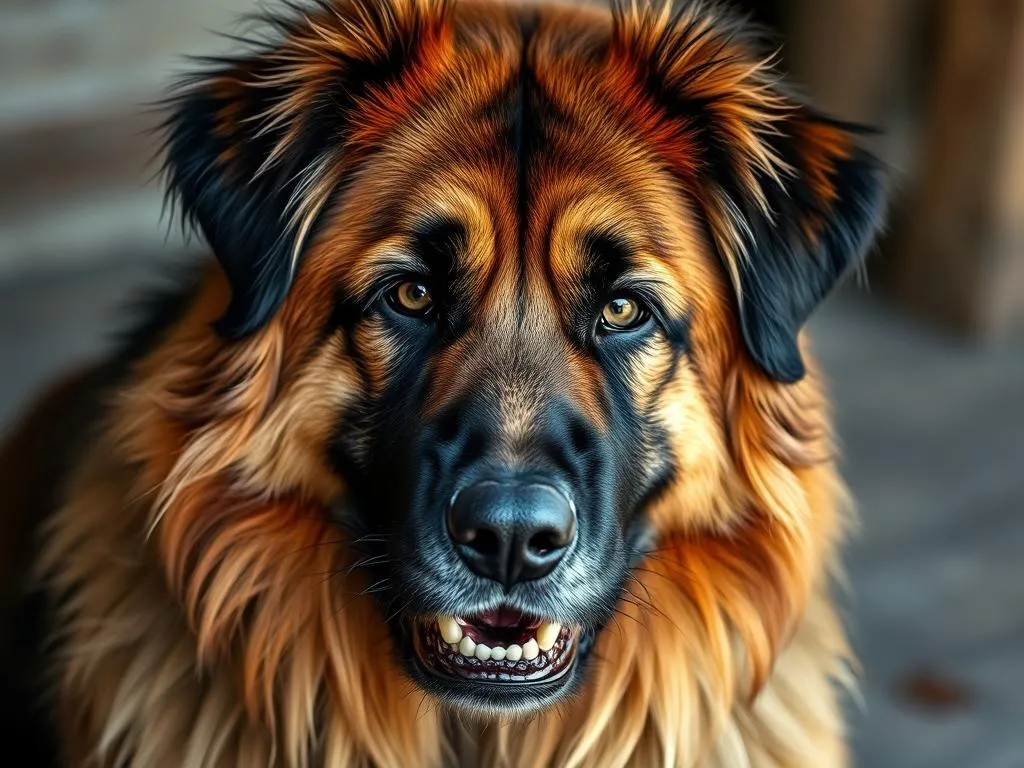
Introduction
Dog breeds are distinct classifications of domestic dogs that share specific characteristics, such as size, appearance, and temperament. Understanding different dog breeds is crucial for prospective pet owners, as it allows them to choose a dog that fits their lifestyle and preferences. Each breed comes with its own set of care needs, behavioral traits, and health considerations.
In this article, we will focus on the Leonberger, a majestic and versatile breed known for its loyalty and gentle nature. As we explore the history, characteristics, and care requirements of the Leonberger, you will gain a deeper appreciation for this unique breed.
Overview of Dog Breeds
What is a Dog Breed?
Dog breeds are categorized groups of domestic dogs that have been selectively bred over generations to exhibit specific traits. These traits can be genetic, physical, or behavioral, and they help define what makes each breed unique. Breeds can vary significantly in size, coat type, activity level, and temperament.
Brief History of Dog Breeding
The evolution of dog breeds dates back thousands of years, with early humans selectively breeding dogs for various purposes, such as hunting, herding, and companionship. This selective breeding led to the development of distinct breeds that excelled in specific roles. Over time, the understanding of genetics and breeding practices evolved, resulting in a wide variety of breeds known today.
Popular Dog Breeds
Some of the most popular dog breeds include:
- Labrador Retriever: Friendly, outgoing, and high-energy.
- German Shepherd: Intelligent, loyal, and versatile working dog.
- Golden Retriever: Affectionate, intelligent, and great with families.
- Bulldog: Gentle, courageous, and good-natured.
- Poodle: Highly intelligent, trainable, and hypoallergenic.
Each breed has its own general characteristics, which can be compared in terms of size, temperament, and purpose.
The Leonberger Breed
History and Origin
The Leonberger breed originated in Germany in the 19th century. It is believed to be a cross between several breeds, including the Saint Bernard, Newfoundland, and Great Pyrenees. The breed was named after the city of Leonberg, where it was developed. Initially, Leonbergers were bred as working dogs, serving as guardians and companions on farms. They were also known for their ability to pull carts and perform various tasks, making them invaluable to their owners.
Physical Characteristics
Leonbergers are large, powerful dogs that typically weigh between 90 to 170 pounds. Males tend to be larger than females, with an average height of 26 to 31 inches at the shoulder. Their coat is thick and water-resistant, often featuring a mix of colors such as golden, sandy, or reddish-brown, with black markings on the face and ears. One of their most distinctive features is their gentle, expressive eyes and a well-proportioned body that exudes strength and grace.
Temperament and Behavior
The Leonberger is known for its affectionate and loyal nature. These dogs are gentle giants, making them excellent companions for families, including those with children. They are highly social animals that thrive on human interaction and can be quite protective of their loved ones. Leonbergers are intelligent and eager to please, which makes them relatively easy to train. However, they require consistent training and socialization from an early age to develop into well-rounded adults.
Care Requirements for Leonbergers
Nutrition
Proper nutrition is essential for maintaining a healthy Leonberger. A high-quality diet that meets their specific needs is crucial, especially during their growth stages. Owners should feed their Leonberger a balanced diet formulated for large breeds, which helps prevent obesity and ensures they receive the necessary nutrients. Common dietary issues include bloat and hip dysplasia, so it’s important to avoid overfeeding and provide meals in controlled portions.
Grooming
Leonbergers have a thick, double coat that requires regular grooming to keep it healthy and free of mats. Brushing at least once a week is recommended, but more frequent grooming is necessary during shedding seasons. Essential tools include a slicker brush and a de-shedding tool to manage the dense undercoat. Regular grooming not only keeps their coat in good condition but also provides an opportunity for bonding between the dog and owner.
Exercise Needs
Due to their size and energy level, Leonbergers require regular exercise to stay healthy and happy. An ideal exercise routine includes daily walks, playtime, and opportunities for mental stimulation. Activities like swimming or playing fetch are excellent for these dogs, as they enjoy being active. It’s important to note that Leonbergers may not require as much vigorous exercise as some other breeds, but regular activity is still crucial for their physical and mental well-being.
Health Considerations
Like many large breeds, Leonbergers are prone to certain health issues, including hip dysplasia, elbow dysplasia, and heart problems. Regular veterinary check-ups are vital for early detection and management of health issues. Preventative measures, such as maintaining a healthy weight and providing a nutritious diet, can help mitigate potential health risks.
Training a Leonberger
Basic Obedience Training
Early socialization and obedience training are critical for a Leonberger. These dogs are naturally calm and eager to please, making them receptive to training. Basic commands, like sit, stay, and come, should be taught using positive reinforcement techniques. Socialization with other dogs and people is equally important, as it helps them develop good manners and adaptability.
Advanced Training
For owners interested in taking their training further, advanced training options such as agility or obedience competitions can be rewarding for both the dog and the owner. Continuing education keeps the Leonberger mentally stimulated and allows them to showcase their intelligence and skills. Engaging in training classes or working with a professional trainer can enhance the learning experience.
Behavioral Issues
While Leonbergers are generally well-behaved, some common behavioral problems may arise, such as separation anxiety or excessive barking. Identifying the root cause of these issues is essential for effective training. Positive reinforcement methods, along with consistent routines and plenty of social interaction, can help mitigate these problems and promote good behavior.
Living with a Leonberger
Ideal Living Environment
Leonbergers thrive in environments where they have space to move and play. Ideally, they should have access to a large yard or open area. However, they can adapt to apartment living if they receive sufficient daily exercise. It’s crucial to provide them with a comfortable space where they can feel secure and relaxed.
Family Dynamics
In a family setting, Leonbergers often take on a protective and nurturing role. They are known for their gentle disposition, making them great companions for children. Their calm nature allows them to interact well with other pets, provided they are properly socialized from a young age. Integrating a Leonberger into family life can lead to a harmonious and joyful atmosphere.
Adoption and Breeding
When considering adding a Leonberger to your family, it’s essential to research reputable breeders or consider adoption from a rescue organization. Look for breeders who prioritize health testing and responsible breeding practices. Adoption can also be a rewarding option, providing a loving home to a dog in need. Regardless of the source, ensure that you are prepared for the commitment and care required for this breed.
Conclusion
The Leonberger is a remarkable breed that combines strength, loyalty, and gentleness. Their unique characteristics make them excellent family companions and loving protectors. Understanding the specific care requirements and training needs of the Leonberger is vital for responsible ownership. With proper attention and care, these majestic dogs can bring immense joy and companionship to their families. As you consider your options for a new pet, take the time to learn about the Leonberger and the wonderful qualities they possess.









